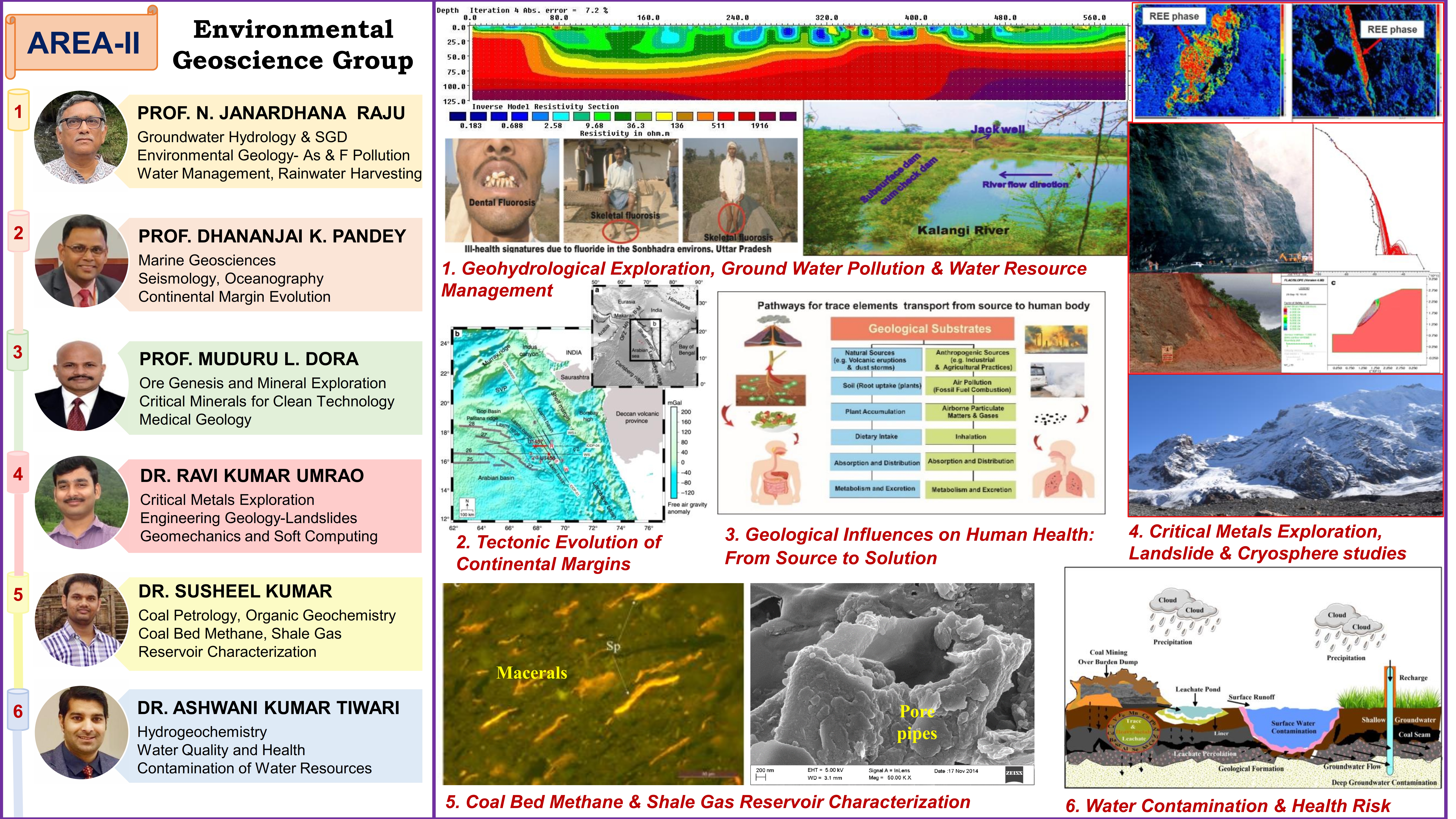
AREA II (Environmental Geosciences) focuses on research initiatives covering different aspects of Earth System Sciences and their implications on the natural and human-made environments. The research activities in Area-II align with the 2030 Agenda of Sustainable Development Goals, viz. Goal 3: Good Health and Well-being, Goal 6: Clean Water and Sanitation; Goal 7: Affordable and Clean Energy; Goal 11: Sustainable Cities and Communities; Goal 12: Responsible Consumption and Production; Goal 13: Climate Action; Goal 14: Life below Water and Goal 5: Life on land.
Major thrust areas of research in Area-II emphasize integrated approaches, i.e., investigating geological, geophysical, and geochemical processes in terrestrial and aquatic systems. Unraveling the origin and evolution of Indian cratons and surrounding continental margins by integrating field observations and cutting-edge experimental techniques. Since SES is a pioneer in Environmental geochemistry and biogeochemical research, the Ministry of Environment, Forest and Climate Change (MOEFCC), Government of India, has granted the EICAP program centre at SES under the Geodiversity and Impact on Environment theme.
Scientific endeavor of Area II faculty highlights the following key environmental aspects:
-
* Water resource assessment and management for sustainable development in the context of a changing climate, water/seawater pollution (geogenic and anthropogenic) and human health risks. Such studies emphasize hydro geochemical processes and the impact of urbanization, agriculture, domestic and industry on water resource management.
-
-
* Oceanography and Geophysical Exploration offering insights into tectonics-climate linkages on various scales. Potential marine (both renewable and non-renewable) resources, contributing to the climate resilience and coastal zone management under the ambits of the United Nations Convention on the Law of the Sea (UNCLOS).
-
-
* Research on Indian cratons emphasizing mineralization processes crucial for the identification of metallogenic provinces. Investigations about critical minerals (such as lithium, nickel, PGE, REEs, graphite, and vanadium etc.) in the Precambrian terranes are crucial for sustainable resource development in the country.
-
-
* Reservoir studies and environmental impact assessment of coal and shale-bearing horizons. Paleodepositional and paleoenvironmental reconstructions through various geochemical proxies. Studies on potential CO2 sequestrations in various geological formations and associated processes.
-
-
* Landslide susceptibility mapping and seismic risk analysis using geotechnical characterization and modeling aspects and its mitigation measures.
-
-
* Understanding the dynamics of the Himalayan Cryosphere and its response to climate change.
With these multidisciplinary efforts and integrated geoscientific approaches, the SES has been recognized as a leading national hub for sustainability and policy-oriented research in the Earth sciences.
Area II Faculty
Prof. N. Janardhana RajuProf. Dhananjai Kumar Pandey (Convener)Prof. Muduru Lachhana DoraDr. Ravi Kumar UmraoDr. Susheel KumarDr. Ashwani Kumar Tiwari |
